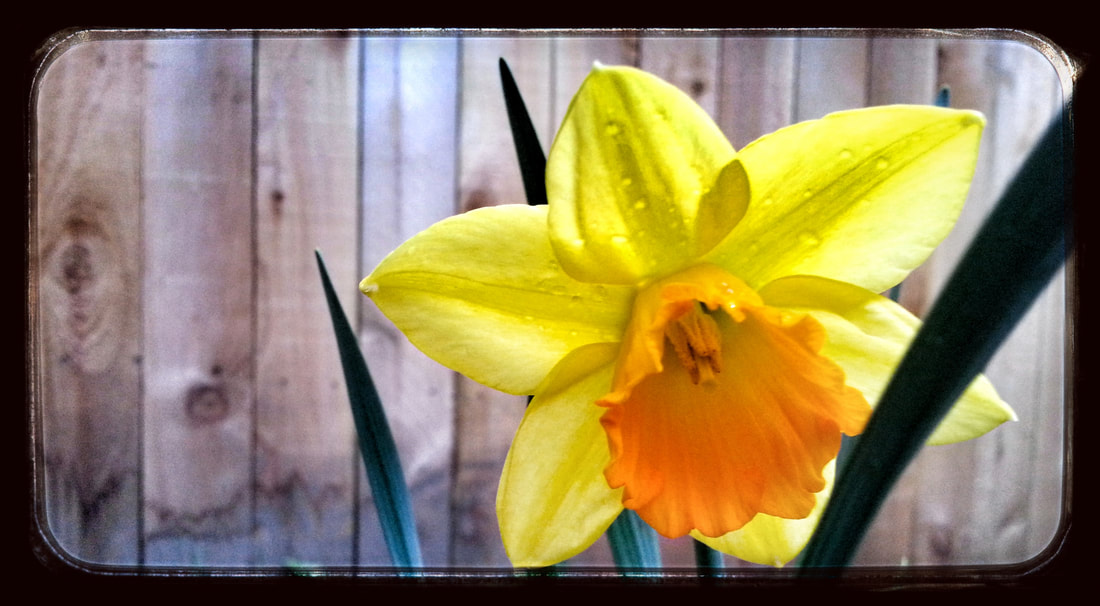 Dear Disciples, Sometimes it happens that seemingly random events or experiences have within them a common thread which suddenly shimmers and calls for you to pay attention. I like to think of those linked moments as the whisperings of Spirit in our lives. Last week one of those Spirit whispers began for me with the emotional words of a U.S. senator who said in a hearing, “I’m not letting anybody...steal my joy.” His speech brought tears to my eyes, for he spoke of a hard won joy, a resilient joy which could not be stopped even when the road was difficult. The thread appeared again when I opened a devotional book by Sister Wendy Beckett, The Art of Lent, which I’ve been using as my personal meditation guide. In it the fourth week of Lent began with Psalm 30:5, “Weeping may linger for the night, but joy comes with the morning.” Here in these long hard days of Lent, Sister Wendy chose to focus her attention upon joy, with each day of this week offering a meditation on embracing joy. You may have seen a bit of this thread of joy, too. In our Full to the Brim devotional books one of the works of art is a paper laced cut-out by Hannah Garrity entitled Inexplicable Joy. Reflecting on the unconditional welcome of the father in the parable of the prodigal she writes of joy as “an act of resistance.” The father embraces the younger son and invites the entire household into a moment of joyful celebration. Joy seems an odd theme for Lent. After all our worship together is focused on the journey of Jesus to Jerusalem and to the cross. It is a profound time when the shadow of the cross looming throughout the season and invites us to dive deeply into our lives as followers of Jesus. And yet, even in the solemness of Lent we may find a thread of joy, in the extravagant celebration of the father in the prodigal parable and overflowing in the loving generosity of Mary who anoints the feet of Jesus with a jar of perfume. The world is filled with so much pain, it can seem that experiencing joy is inappropriate. How can I feel joy when war is raging in far away places? After two years of living through a pandemic, with over 6 million deaths from COVID-19, joy may seem wrong. Is it right to feel joy when laws are being passed which discriminate against our trans siblings? So much of life is hard, the news filled with the horrors of the world. And yet. In a recent conversation with Brené Brown on the podcast, “Unlocking Us,” writer Karen Walrond exclaimed, “If we feel guilt about the joy, then the bad guys win….We can’t let them win...and joy is how we develop resiliency.” As she said this, I felt a weight lift. Yes, we will burn out if all we do is focus on the worst of humanity. But we know there is so much more to the world than the evil which grabs the headlines. I know I’ve heard joy in recent days—in the gift of music performed by Rowan County School District students in Seussical the Musical and by the Cave Run Symphony at their Fairy Tales concert. I’ve seen joy, too—in the beauty of daffodils and dogwood tree blossoms. And I’ve tasted joy in a bite of homemade carrot cake shared by a friend. May we be met with joy, my friends, even in troubled times. And may we be freed by the Spirit to embrace the joy life brings us.
0 Comments
Dear Disciples,
As I write these words war has been waging in Ukraine for several days. We see images of civilians huddling in transit stations, bombed out streets, and lines of refugees stretching for miles. My heart aches for the needless suffering we are witnessing. As our newsfeeds and television screens are constantly announcing “Breaking News,” it can be tempting to fill our hours with the latest updates. I confess I have spent many hours doom scrolling on Twitter, refreshing my screen in a never ending search for the latest news. Our access to instant communication, to livestreams on social media and correspondent updates on the news while connecting us in radically new ways can also paralyze us. This topic came up in a recent episode of a favorite podcast of mine, Mid-faith Crisis, co-hosted by a UK Baptist minister, Joe Davis and writer Nick Page. The two discussed their own feelings of powerlessness with respect to the news. Should we stop watching the news altogether to protect our mental health? We do have a responsibility to the world and to other human beings to be aware, and yet can we do so without fixating on things we cannot change? My takeaway from the podcast conversation was a personal intention of setting limits on the amount of time I spend consuming news, including turning off phone notifications. In a way this is learning to practice that powerful line from Reinhold Niebuhr's Serenity Prayer, “God, grant me the serenity to accept the things I cannot change, courage to change the things I can, and wisdom to know the difference.” In our Lent at Home kits you will find a reflective assessment tool, utilizing a wellness wheel. I invite you to use this assessment as we enter into Lent. We have additional copies available at the church office. I’ve been working my way through the wheel in February, and I’ve found the process enlightening. May this season of Lent a time of expansive living, as we welcome God’s dreams for ourselves and for the world. 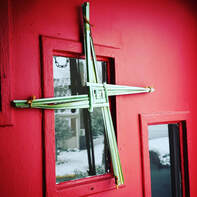 Cross of St. Brigid Cross of St. Brigid ….As if St. Brigid once more Had rigged up a ray of sun Like the one she’d strung on air To dry her own cloak on (Hard-pressed Brigid, so Unstoppably on the go)- The damp and slump and unfair Drag of the workday Made light of and got through As usual, brilliantly. —Seamus Heaney, “Clothes Shrine” (listen to Seamus Heaney read the entire poem here.) Dear Disciples, The first of February is the feast day of St. Brigid, 5th century Celtic saint and Abbess of Kildare. Her origins are wrapped in mythology and legend, with stories most likely woven from pre-Christian traditions of the sun goddess Brigid. The stories surrounding her celebrate generosity and kindness, with common themes of strength and determination, perhaps even a bit of holy stubbornness! As the saying goes, many of the stories surrounding St. Brigid are true, and some of them actually happened. One legend tells that Brigid was the child of a pagan chieftain and his slave wife, Broicsech, who was a Christian. Her mother worked with the dairy cows of the chief, and at dawn on February 1 as she was stepping across the doorway threshold into the barn, she gave birth to Brigid. Thresholds become an important part of traditions surrounding Brigid, including the placing of a woven cross at the entrance to the home. Raised in the Christian faith of her mother, her generosity became stuff of legend. She would give food or milk to any poor person who came to her door. Her tendency to give so extravagantly angered her father so much he tried to put an end to her charity. One day she was cooking bacon , a hungry dog stuck its head inside the door. Of course the soft-hearted Brigid gave the poor hound pieces of the bacon to eat. Worried about what her father would say, she prayed over the bacon still in the pan. And when the group was being served, there was more bacon than before, enough for everyone. Eventually her father hoped to have the young Brigid married off, ridding his household of the girl who kept giving so much of his possessions away to the poor. Brigid had other ideas, and eventually he relented. Brigid left home to follow the religious life. She would found the Abbey of Kildare, (Abbey of the Oak) a double monastery for nuns and monks. The story goes that when the bishop came to ordain her as Abbess, he was so “intoxicated with the grace of God” he instead prayed the prayer of blessing for a bishop over her. The abbey also contained a school of art, for metal work and for manuscript illumination. I stumbled across stories of St. Brigid as I was learning about the histories of Celtic Christianity. She is an intriguing bridge figure between the ancient indigenous traditions of Ireland and the growing Christian presence on the island. She is the patron saint of many traditions—of midwives (there’s a marvelous legend of angels carrying her back to Bethlehem to attend to Mary at the birth of Jesus); of artists; and yes, of brewers. There are several stories of Brigid performing miracles with water, milk, and even ale. The story goes that she supplied ale out of her barrel to eighteen churches in the area, enough to carry the churches through from Maundy Thursday to the end of Easter. One 10th century song to Brigid imagines her gift to God in heaven to be a lake of beer with all the faithful gathered round: “I'd sit with the men, the women and God, there by the lake of beer. We'd be drinking good health forever, and every drop would be a prayer.” From the stories of St. Brigid we find inspiration for generous living, for an attention to the presence of the sacred in the everyday-ness of our lives, and a joyous embrace of living in the ways of Jesus. Seamus Heaney’s lovely poem “Clothes Shrine” elevates the ordinariness of hanging up laundry with an awareness of the Holy in the mundane. On this February 1, may the welcoming ways of St. Brigid be an inspiration to us. Be well, be kind, and always be the church where you are. Pastor Nancy The things of this world do not seem
to be going according to plan. For one thing, the altar’s on fire. The pastor hasn’t notice, thinks the audience is unusually moved by his words... —Marci Johnson, “O That with Yonder Sacred Throng” (in Basic Disaster Supplies Kit, 2016) I think it’s safe to say that 2021 did not go according to plan. In January of 2021 most of us were anxiously awaiting our turn to be eligible for a COVID-19 vaccine shot. Now here we are, one year later, and less than 55% of individuals in Rowan County have received at least one dose of the vaccine. We’ve lived through the Delta surge of late summer and fall and watched in disbelief as the National Guard stepped into to assist our local hospital as the hospitalization numbers pushed our medical facilities to their limits. The Omicron variant is now overtaking the numbers of infected and we’re still learning more about its severity. The number of COVID-19 deaths reported in Rowan county between September and December was more than double the total number of deaths in all of 2020 and the first half of 2021 combined. And yet, everywhere you go, it’s apparent—people are tired of it all. Mask wearing has waned greatly, even though it is one tool to help reduce the spread of COVID-19 and is recommended by health professionals when in public places. How do we respond when things don’t go according to plan? I suspect some of us may be in Eeyore’s camp, saying ““End of the road. Nothing to do and no hope of things getting better.” And then there are others who don’t seemed phased a bit, as they set about constructing lemonade stands and making lemonade. Most of us are probably somewhere in between the two. When considering human responses to adversity, Psychologists speak of resilience, of an individual’s ability to adapt to situations of tragedy, trauma, or significant stress. We have been living through an extended time of stress, which has both tested our resiliency and been an opportunity to increasing our capacity for resilience. Experts suggest there are four core areas which contribute to our levels of resilience, and that we can develop our resilience by focusing on those areas: connections, wellness, healthy thinking, and meaning. (see Building Your Resilience) Connections: Try focusing on relationships which are life-giving and affirming or joining groups which are supportive and cultivate our sense of purpose. Wellness: In times of stress we often forget about our physical health. Paying attention to healthy eating habits, developing good sleeping patterns, moving our bodies regularly—all of these aspects of physical health can help our responses to stress. Practice mindfulness—through prayer, meditation, or journaling. Healthy thinking: Cut out sources of negativity—try taking a break from social media. Practice gratitude—reflecting on our day or our past and identifying positive experiences can help break thought patterns of negativity. Meaning: It may sound simple, but helping others gives us purpose and pulls us from an unhealthy focus on ourselves. Reflecting on how we have changed from an adverse experience, identifying points of growth and development, can also build our capacity for resilience. Being part of a healthy faith community is one way to build on these four components of resilience. I invite you to take some time and reflect on this past year: In what ways have you cultivated resilience? Who has been a part of that growth? How has our faith community contributed to your capacity for resilience? Is there a core component of resilience in which you’d like to focus on this year? How can we as a congregation support one another in the practice of resilience? We’ve made it this far together, let’s see what the new year holds for us. For this is the day we have been given; let us rejoice and be glad in it. Be well. Be kind. And always be the church where you are. Pastor Nancy 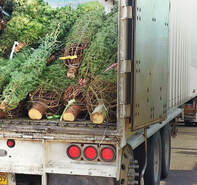 "Bound" - from Advent Photo-a-Day 2013 "Bound" - from Advent Photo-a-Day 2013 For lack of attention a thousand forms of loveliness elude us every day. — Evelyn Underhill Dear Disciples, As I write this column, we have just entered the season of Advent. After three months of livestreaming worship only, our first Sunday with many back in the sanctuary was a joyful coming home celebration. Yes, we were all wearing our masks and doing our best to maintain physical distancing. Even so, the sparkle in the eyes of those gathered in the sanctuary was an indication of many smiles behind the masks. The reduced strain on the ICU in our hospital, the availability of booster shots, and the expansion of eligibility of vaccines to include children ages 5 and up allows us to return to in person worship carefully. We recognize that some individuals continue to need to exercise special caution because of their particular health situations, and we encourage you to make the best choices for yourself and your loved ones. We’ll continue to provide livestreams of our worship services on Facebook and YouTube. In addition we’ve learned the value of virtual gathering spaces, so we’ll keep finding ways to connect with one another on Zoom. This year we have Advent at Home kits available for households. These kits include Advent calendars, daily devotions, candles for creating an Advent wreath, craft ideas, and more. The kits are available during church office hours this week. If you need one delivered to you, contact the office. I encourage you to use the Advent kits to create your own spiritual practices for Advent. We’ve added one of my favorites practices this year, the Advent Photo-a-Day devotions. There is one word for each day of Advent. Hold the word in your thoughts throughout the day. When you see something that connects to that word, snap a photo. You can share those photos on your social media or you can keep them for yourself. Sharing them with others may spark more folks to take up the practice, and you may find inspiration in the posts others share. I looked back in my photos, and the first time I participated in an Advent Photo-a-Day practice was in 2013. I'm including a few of those photos here. The daily practice of reflecting on one word and taking a photo relating to it is a way to help us pay attention. We are learning to look with an openness for what is around us, to find meaning in the everyday. If you haven’t tried it before, I encourage you to take a look at the Advent words for this year. See what you may discover about yourself, the world, and the Sacred which surrounds us every day. I’d love to see what captures your attention. If you do share your photos on social media, use the hashtags #fccmky, #fccmorehead, #advent2021, #closetohome. May this Advent season be a time of waiting, expectant waiting, for the Holy One to be revealed. Be well. Be kind. And always be the church where you are. Pastor Nancy History is not a burden on the memory but an illumination of the soul.
-John Dalberg-Acton Dear Disciples, Much of pastoral ministry involves not speaking, but listening. A new minister slowly learns the stories of their congregation, both individual stories and the collective history of that faith community. Listening takes time and intentionality. As relationships deepen, the opportunities for sharing significant and personal experiences grows. A few months ago I shared some of what I’ve been learning about FCC Morehead, gleaned from conversations and practices. I listed the core values I’ve see in this faith community: communion, compassion, education, beauty, Creation, hospitality, community, history, and practicality. It’s an incomplete list, I know. Still I hope we can continue the conversation on these core values. I’d love to see where our lists overlap and what you know of this congregation that I have yet to learn. Let me say a bit more about one of those core values: history. I am mindful of the rich tradition of this congregation, under the direction of Frank C. Button its joint history with the founding of the Morehead Normal School, now Morehead State University. The very foundation of the church building rests upon the ground of its predecessor, the Union Church, which was built at the encouragement Col. John Hargis, founder of Morehead. Those two parts of our congregation’s history reveal the threads of ministry which continue to this day: our ongoing commitment to education and our dedication to ecumenism. It is, borrowing the words of Lord Acton, “an illumination of the soul” of this congregation. An exploration of one’s history also calls us to reflection, and at times repentance. Our ancestors, both personal and corporate, were human beings like us, sometimes inspiring, at other points most fallible. Engaging in history requires much of us, to be willing to face uncomfortable facts and to learn what those parts of our history reveal about ourselves. Our congregation’s history is no exception. The first financial supporter of the founding of the Normal School and of the Christian Church in Morehead was William Temple Withers, a former Confederate general and slaveowner, and also a prominent Lexington philanthropist and supporter within Christian Church circles. His name is included in one of our stained glass windows. History is complicated because human beings are complicated. We are beginning our worship services with an acknowledgement of the land, a public recognition of the stories of this place before us, of the people who lived on this land, loved it, cared for it, and who were forcibly displaced from their lands. That story is part of the history of the American church, too, and of ours as members of the Christian Church (Disciples of Christ). It’s a history which may make us uncomfortable, which challenges the narratives our ancestors told about themselves. Learning about the Doctrine of Discovery, the role that Christian churches played in the forced removal and the intentional erasure of indigenous culture and practices, enables us to tell our own stories with more honesty and humility. And it can change the ways in which we engage in ministry today, as we learn from the mistakes of the past and see how those historic decisions still affect the present day. Our histories are a mix of cherished stories and of regrets. I’m grateful that this congregation is committed to being faithful storytellers who both inspire and who don’t flinch at the painful chapters of the past. How do you understand the role of history in this congregation? In your own life? What lessons are you learning from the past? What stories do you want to know more about? Let’s keep this conversation going. Be well. Be kind. And always be the church where you are. Pastor Nancy  Dear Disciples, We’ve hit another rough patch in this ongoing global pandemic. Every time we think we’re nearing the end of the worst of it all, a new cruel curve ball is thrown at us. Many of us were jubilant as vaccines with incredible effectiveness were rolled out earlier this year. As soon as we were eligible, we made our appointments, rolled up our sleeves, and weathered the possible side effects of vaccines. We did so for ourselves, for our families, friends, coworkers, and for our neighbors. But sadly, many of our neighbors did not. Our county’s vaccination rate slowed, not reaching 50% until September 2021. And that low vaccination rate kept the door open for the new Delta variant to spread. Our local hospital has been highlighted on the national news—because of the alarming numbers of COVID-19 patients in its care and the ongoing stress placed on its medical care staff. I’ve heard from many of you that you’re tired. You’re exhausted from the goal posts continually being moved further away. You miss the community of our faith practices, the hugs and greetings, the laughter, the shared meals. The choir longs to sing again, and we would love to hear congregational singing ring through our sanctuary. The picture of this sidewalk sign appeared in my Facebook feed this week. It made me smile. Not only because last night my barbacoa taco fell apart as I was trying to eat dinner, but because it was a word I needed to hear, too. In the midst of all of this uncertainty, as we grieve experiences and people we miss, even as we struggle with resentment or anger, I encourage you to be kind to yourself. Allow yourself to feel whatever emotions come to you. There is no one right way to live through a pandemic. Each Thursday night vespers includes two readings: one from Mark’s gospel and also a psalm. The Psalms are a gift to us—in it we are given the heights and the depths of human emotions. Nothing is off limits. We hear the rawness of personal pain and tragedy. The psalmist gives voice to despair and loneliness. I am twisted, I am all bent. All day long I go about gloomy. (Ps. 38:7) At times the honesty can take us aback. (Ps. 137:8-9 is a horrific example.) For me it bears witness to the wideness of God’s embrace. There is no emotion we can experience that would make God turn away. The psalmist offers words of soaring praise and joy alongside of the darkness of pain and suffering. It is an unflinching portrayal of human living with no judgement or rejection. Through all its pages the psalms provide a glimpse of a faith forged in the messiness of life. Faith that doesn’t require a forced optimism or demand we live with false smile on our faces. So give yourself some space...and some grace, too. These days of pandemic may linger, but God’s steadfast love endures forever. (Ps. 136) Be well. Be kind. And always be the church where you are. --Pastor Nancy Dear Disciples,
Semper Gumby, indeed (although my Latin teacher might argue for semper flexibile). Just a few weeks ago in July we were planning for a very different fall. Singing masks were purchased for our church choir, we were beginning to discuss ways to open our building up again for community events, and we thought the worst of the pandemic was behind us. And today, as I write this, there is an emergency field hospital unit set up in the parking lot at St. Claire Regional Medical Center to process patients as the medical facility is straining to care for patients. The Returning to Worship committee made the difficult decision to resume virtual worship services beginning on August 15. At the time it seemed we were alone in this assessment. Although we know many congregations in our area are continuing to meet in person, the ecumenical guidelines on safely gathering indoors for worship services recommend a more cautious approach. Now other Disciples congregations in our region are also reverting to virtual worship services. We will continue to monitor the conditions in our county as we consider when we are meeting the benchmarks to offer in-person worship safely. Whether we asked for it or not, the pandemic is offering opportunities for rethinking church, faith, and spiritual formation. We’ve always said the church was not limited to an hour on Sunday morning, now we are living out what that might look like in practice. This September we will again be celebrating the Season of Creation. Our worship services will provide inspiration for us to do more reflection on our own relationships with creation. I hope you will find ways to engage with the Season of Creation art exhibition, either on-line or in person. Together we can celebrate Creation not only in words, but also in deeds, putting into practice the spiritual wisdom of our faith tradition to care for the earth. We tend to focus on the limitations of the moment—what’s not open, what’s not safe, what we have given up in this pandemic. In the spirit of flexibility, can we ask different questions? What is opening up for you now? What can you embrace in this time? What doors are open now? As you reflect on the possibilities of this time, stop to give thanks for the unexpected blessings you’ve discovered and for the previously overlooked gifts of the past 18 months. And remember—God is good. All the time. Be well. Be kind. And always be the church where you are. --Pastor Nancy Living into our values means that we do more than profess our values, we practice them. We walk our talk — we are clear about what we believe and hold important, and we take care that our intentions, words, thoughts, and behaviors align with those beliefs.
—Brene’ Brown Planning meetings are seldom glamorous. Calendars are a must. Events and projects will get listed. Names of potential volunteers are floated. To-do lists grow. If all goes as designed, everyone goes home with their share of tasks to complete. Planning meetings are a necessary part of the life of any organization—business, nonprofit, or church. We’ve all been part of planning sessions, some productive, some perfunctory, and others fruitless. I don’t know about you, but just writing those sentences make me tired! My response may have something to do with those “planning for planning’s sake” meeting I’ve been a part of, when everyone there is already overtaxed, and the last thing they want to do is add to their workload. People leave such meetings with their shoulders sagging and their hearts heavy. It’s a recipe for burnout and disappointment. Planning sessions don’t have to be that way. With focus, intentionality, a wee bit of flexibility, and a whole lot of grace, folks with a common purpose can come together to map out their next steps, breathe new life into ongoing projects, and imagine new endeavors. Productive planning starts with knowing the groups core values and using those values to design and evaluate the work of the group. I’ve spent much of my time this past year listening, paying attention to stories of what you’ve done as a congregation, what you miss, what you hope for. It’s been a challenge in a pandemic, and I hope to have many more conversations to come. One of the things I’ve been listening for are what the core values of this congregation are. Sometimes those values are explicitly named, other times they show up as common threads in activities and projects in which people are invested. Every church community is different. Here’s a start at what I’m learning about FCC Morehead, in no particular order.
What do you think of it? Any thing you would add? Which ones do you think are core values of our congregation? Any questions about how I see these values in our congregational life? When a congregation is clear about its values, we can focus the planning process. Planning sessions can take on new life, as we evaluate, dream, and design our activities through the lens of our core values. In a few weeks FCC ministry leaders and volunteers will come together for an annual planning workshop. We’ll focus on our values and how what we choose to focus on in the coming year reflects those priorities. I invite all of you, whether you’re a part of that planning meeting or not, to pray for our work. May the Spirit guide us as we seek to be faithful to God’s call for us here and now. With Christ’s grace and peace, --Pastor Nancy We are Disciples of Christ, a movement for wholeness in a fragmented world.
As part of the one body of Christ we welcome all to the Lord’s Table as God has welcomed us. —2008 Identity Statement, Christian Church (Disciples of Christ) I must confess it is difficult for me to wrap my mind around the fact that I am writing the first pastor’s column of my second year serving alongside you in ministry at First Christian Church of Morehead, KY. Time has passed strangely these last 12 months. Some of you I have met with weekly on Zoom over the past 12 months. We’ve shared in communion together in weekly vespers. Others have gathered virtually for film festival discussions during Advent and Lent. We’ve held Lenten tea time conversations on Monday afternoons and monthly book study discussions. I’ve joined with a wonderful group of women for Tuesday night Bible studies. These gatherings have been rich and meaningful. I’ve learned much about you, and you have gotten to know me (and my dog Stoney) through these conversations. And now we are carefully coming back together for in person gatherings, for Sunday worship and for planning meetings. In person gatherings means we have the chance to get to know one another in those wonderfully normal, everyday conversations that happen in those informal moments, before worship begins or after a meeting is concluded. As with any new relationship we’ve been adjusting to one another. I’m learning some of your favorite traditions and practices, finding commonalities and differences with my experiences in other Disciples congregations. And in turn, you’re getting used to my leadership style, the priorities I bring to my calling as a pastor, and the gifts I have to offer. These past twelve months have been a time of learning and growth for all of us. I’m grateful for the hospitality you’ve shown me and for the graciousness of all of the leaders and volunteers of this congregation as we’ve navigated these challenging days. This next year is overflowing with possibilities. Our church leadership will face many choices on how best to live faithfully together. Faithful decision making takes time and intention, and is always rooted in the spiritual practice of prayerful discernment. Thank goodness the work of the church is not a sprint; it’s not even a marathon (with a nod to the Apostle Paul), we are called to a lifelong pilgrimage of faith. As we plan together our next steps, we’ll reflect on where God has been with us in the past, and listen for where the Spirit is leading us now. And we’ll hold before us the vision and rich tradition and the present calling of this congregation, reflecting on how these familiar words can guide our path forward: We are Disciples…. We reach out and within. We prepare God’s table for all, as it was prepared for us. We embrace the old, the heartsick, the outcast, the different. We believe Love wins. We have a clear sense we are on a journey in the right direction and we’re on the journey together…. We are Disciples. With great hope and anticipation, --Pastor Nancy |
AuthorA native of Illinois, Rev. Nancy Gowler lived for 26 years in the Pacific Northwest. She joined the ministry of First Christian Church in Morehead, KY, in July of 2020. Archives
January 2023
Categories
All
|
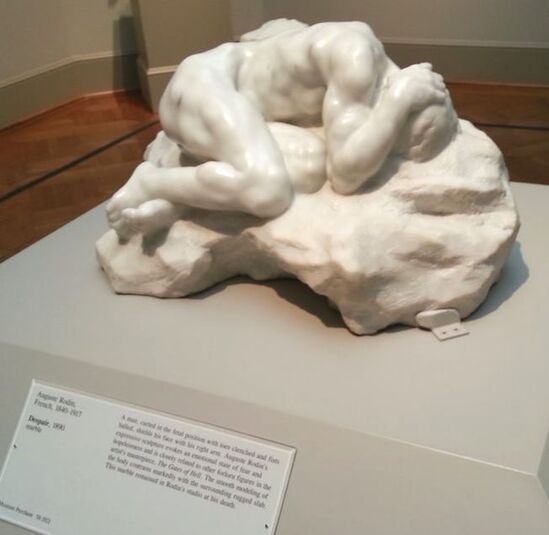




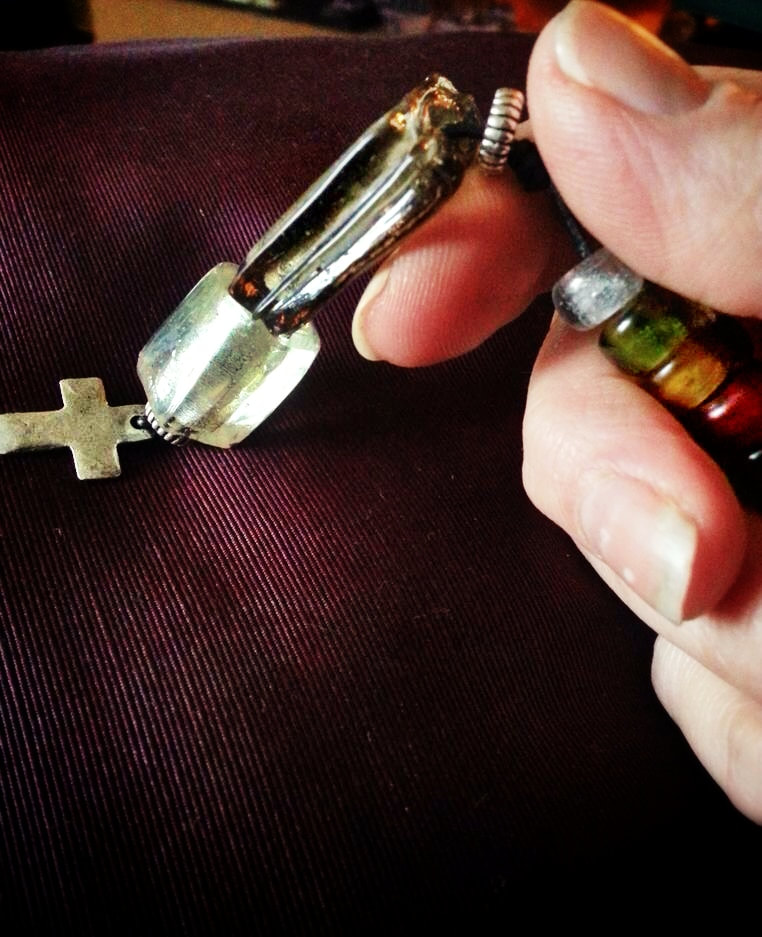
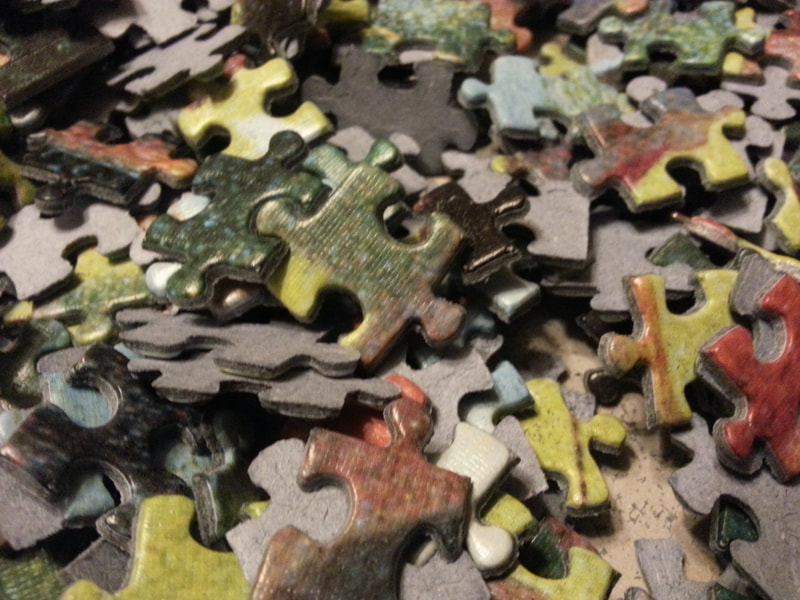
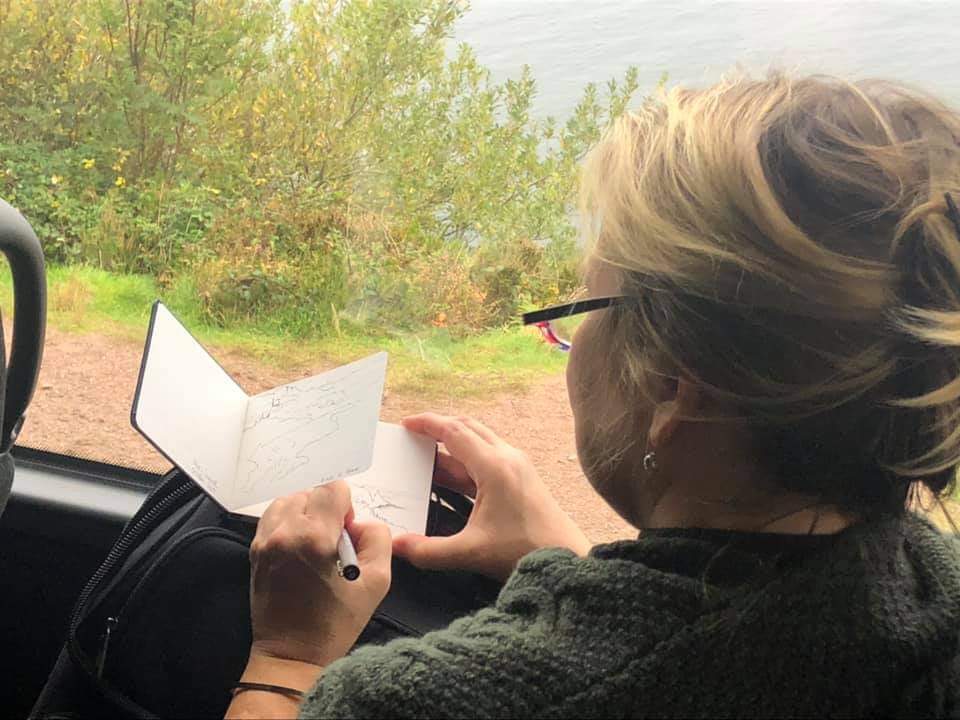
 RSS Feed
RSS Feed
